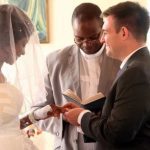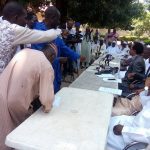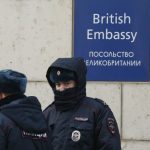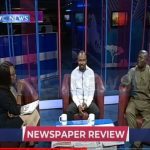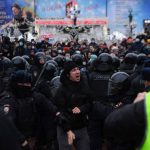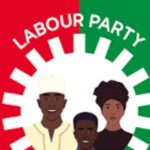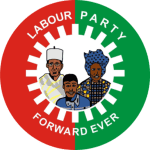Zimbabweans are voting in presidential and legislative elections following a campaign dominated by the country’s skyrocketing inflation.
The day has been designated as a public holiday in order to allow the 6.62 million registered voters to vote.
President Emmerson Mnangagwa is up against ten opponents, including Nelson Chamisa of the main opposition Citizens Coalition for Change (CCC).
To win, a presidential contender must receive more than 50% of the vote.
If there is no clear winner, a presidential run-off election will be place in six weeks on October 2nd.
It is the first election after the death of Robert Mugabe, who for decades dominated Zimbabwean politics and the ruling Zanu-PF party.
He died in 2019, nearly two years after being deposed in a military coup and succeeded by his deputy, Mr Mnangagwa.
Polling stations will open at 07:00 local time (05:00 GMT) and voters will also be casting ballots for local councillors.
To comply with electoral laws, election authorities were setting up polling stations in the capital, Harare, and removing political posters that were in close proximity.
According to police commissioner Godwin Matanga, police have been dispatched around the country to preserve peace and order, and their numbers will be supplemented by jail personnel.
Despite minor incidents, he insisted that the pre-election period had been mainly quiet.
Opposition parties, meanwhile, claim that a disproportionate number of their gatherings have been prohibited or interrupted by police.
Earlier this month, one CCC supporter was slain in a shooting. Police have arrested 15 people in connection with the investigation.
The Zimbabwe Electoral Commission (Zec) has urged voters not to wear nail polish or nail extensions on their left pinkie finger, which would be marked with permanent ink after voting.
Monitoring groups have voiced concerns about potential irregularities on the voter list, alleging that some names had been transferred from their usual voting locations to other places.
Boundary modifications made at the last minute have also drawn criticism, as voters might not be aware that their designated voting location has changed.
Mr. Mnangagwa, who is seeking re-election, is keen for the vote to be approved globally so that Zimbabwe’s foreign debt may be modified and possibly fresh lines of credit that have been closed for more than 20 years can be opened.
He has struggled to keep inflation in check, which was in the single digits in late 2017. It peaked at 176% in June, but numbers released this week show that it has dropped to 77.2% from 101.3% in July.
Zanu-PF did not issue a manifesto, claiming that the president’s performance speaks for itself, with a mining boom and large investments in infrastructure.
However, the CCC claims that ordinary people have not benefited, with one in every four Zimbabweans out of job. Mr Chamisa has stated that he intends to scrap Polls close at 19:00 local time (17:00 GMT). The presidential results are due within five days.
Zimbabweans are voting in presidential and legislative elections following a campaign dominated by the country’s skyrocketing inflation.
The day has been designated as a public holiday in order to allow the 6.62 million registered voters to vote.
President Emmerson Mnangagwa is up against ten opponents, including Nelson Chamisa of the main opposition Citizens Coalition for Change (CCC).
To win, a presidential contender must receive more than 50% of the vote.
If there is no clear winner, a presidential run-off election will be place in six weeks on October 2nd.
It is the first election after the death of Robert Mugabe, who for decades dominated Zimbabwean politics and the ruling Zanu-PF party.
He died in 2019, nearly two years after being deposed in a military coup and succeeded by his deputy, Mr Mnangagwa.
Polling stations will open at 07:00 local time (05:00 GMT) and voters will also be casting ballots for local councillors.
To comply with electoral laws, election authorities were setting up polling stations in the capital, Harare, and removing political posters that were in close proximity.
According to police commissioner Godwin Matanga, police have been dispatched around the country to preserve peace and order, and their numbers will be supplemented by jail personnel.
Despite minor incidents, he insisted that the pre-election period had been mainly quiet.
Opposition parties, meanwhile, claim that a disproportionate number of their gatherings have been prohibited or interrupted by police.
Earlier this month, one CCC supporter was slain in a shooting. Police have arrested 15 people in connection with the investigation.
The Zimbabwe Electoral Commission (Zec) has urged voters not to wear nail polish or nail extensions on their left pinkie finger, which would be marked with permanent ink after voting.
Monitoring groups have voiced concerns about potential irregularities on the voter list, alleging that some names had been transferred from their usual voting locations to other places.
Boundary modifications made at the last minute have also drawn criticism, as voters might not be aware that their designated voting location has changed.
Mr. Mnangagwa, who is seeking re-election, is keen for the vote to be approved globally so that Zimbabwe’s foreign debt may be modified and possibly fresh lines of credit that have been closed for more than 20 years can be opened.
He has struggled to keep inflation in check, which was in the single digits in late 2017. It peaked at 176% in June, but numbers released this week show that it has dropped to 77.2% from 101.3% in July.
Zanu-PF did not issue a manifesto, claiming that the president’s performance speaks for itself, with a mining boom and large investments in infrastructure.
However, the CCC claims that ordinary people have not benefited, with one in every four Zimbabweans out of job. Mr Chamisa has stated that he intends to scrap Polls close at 19:00 local time (17:00 GMT). The presidential results are due within five days.
Zimbabweans are voting in presidential and legislative elections following a campaign dominated by the country’s skyrocketing inflation.
The day has been designated as a public holiday in order to allow the 6.62 million registered voters to vote.
President Emmerson Mnangagwa is up against ten opponents, including Nelson Chamisa of the main opposition Citizens Coalition for Change (CCC).
To win, a presidential contender must receive more than 50% of the vote.
If there is no clear winner, a presidential run-off election will be place in six weeks on October 2nd.
It is the first election after the death of Robert Mugabe, who for decades dominated Zimbabwean politics and the ruling Zanu-PF party.
He died in 2019, nearly two years after being deposed in a military coup and succeeded by his deputy, Mr Mnangagwa.
Polling stations will open at 07:00 local time (05:00 GMT) and voters will also be casting ballots for local councillors.
To comply with electoral laws, election authorities were setting up polling stations in the capital, Harare, and removing political posters that were in close proximity.
According to police commissioner Godwin Matanga, police have been dispatched around the country to preserve peace and order, and their numbers will be supplemented by jail personnel.
Despite minor incidents, he insisted that the pre-election period had been mainly quiet.
Opposition parties, meanwhile, claim that a disproportionate number of their gatherings have been prohibited or interrupted by police.
Earlier this month, one CCC supporter was slain in a shooting. Police have arrested 15 people in connection with the investigation.
The Zimbabwe Electoral Commission (Zec) has urged voters not to wear nail polish or nail extensions on their left pinkie finger, which would be marked with permanent ink after voting.
Monitoring groups have voiced concerns about potential irregularities on the voter list, alleging that some names had been transferred from their usual voting locations to other places.
Boundary modifications made at the last minute have also drawn criticism, as voters might not be aware that their designated voting location has changed.
Mr. Mnangagwa, who is seeking re-election, is keen for the vote to be approved globally so that Zimbabwe’s foreign debt may be modified and possibly fresh lines of credit that have been closed for more than 20 years can be opened.
He has struggled to keep inflation in check, which was in the single digits in late 2017. It peaked at 176% in June, but numbers released this week show that it has dropped to 77.2% from 101.3% in July.
Zanu-PF did not issue a manifesto, claiming that the president’s performance speaks for itself, with a mining boom and large investments in infrastructure.
However, the CCC claims that ordinary people have not benefited, with one in every four Zimbabweans out of job. Mr Chamisa has stated that he intends to scrap Polls close at 19:00 local time (17:00 GMT). The presidential results are due within five days.
Zimbabweans are voting in presidential and legislative elections following a campaign dominated by the country’s skyrocketing inflation.
The day has been designated as a public holiday in order to allow the 6.62 million registered voters to vote.
President Emmerson Mnangagwa is up against ten opponents, including Nelson Chamisa of the main opposition Citizens Coalition for Change (CCC).
To win, a presidential contender must receive more than 50% of the vote.
If there is no clear winner, a presidential run-off election will be place in six weeks on October 2nd.
It is the first election after the death of Robert Mugabe, who for decades dominated Zimbabwean politics and the ruling Zanu-PF party.
He died in 2019, nearly two years after being deposed in a military coup and succeeded by his deputy, Mr Mnangagwa.
Polling stations will open at 07:00 local time (05:00 GMT) and voters will also be casting ballots for local councillors.
To comply with electoral laws, election authorities were setting up polling stations in the capital, Harare, and removing political posters that were in close proximity.
According to police commissioner Godwin Matanga, police have been dispatched around the country to preserve peace and order, and their numbers will be supplemented by jail personnel.
Despite minor incidents, he insisted that the pre-election period had been mainly quiet.
Opposition parties, meanwhile, claim that a disproportionate number of their gatherings have been prohibited or interrupted by police.
Earlier this month, one CCC supporter was slain in a shooting. Police have arrested 15 people in connection with the investigation.
The Zimbabwe Electoral Commission (Zec) has urged voters not to wear nail polish or nail extensions on their left pinkie finger, which would be marked with permanent ink after voting.
Monitoring groups have voiced concerns about potential irregularities on the voter list, alleging that some names had been transferred from their usual voting locations to other places.
Boundary modifications made at the last minute have also drawn criticism, as voters might not be aware that their designated voting location has changed.
Mr. Mnangagwa, who is seeking re-election, is keen for the vote to be approved globally so that Zimbabwe’s foreign debt may be modified and possibly fresh lines of credit that have been closed for more than 20 years can be opened.
He has struggled to keep inflation in check, which was in the single digits in late 2017. It peaked at 176% in June, but numbers released this week show that it has dropped to 77.2% from 101.3% in July.
Zanu-PF did not issue a manifesto, claiming that the president’s performance speaks for itself, with a mining boom and large investments in infrastructure.
However, the CCC claims that ordinary people have not benefited, with one in every four Zimbabweans out of job. Mr Chamisa has stated that he intends to scrap Polls close at 19:00 local time (17:00 GMT). The presidential results are due within five days.
Zimbabweans are voting in presidential and legislative elections following a campaign dominated by the country’s skyrocketing inflation.
The day has been designated as a public holiday in order to allow the 6.62 million registered voters to vote.
President Emmerson Mnangagwa is up against ten opponents, including Nelson Chamisa of the main opposition Citizens Coalition for Change (CCC).
To win, a presidential contender must receive more than 50% of the vote.
If there is no clear winner, a presidential run-off election will be place in six weeks on October 2nd.
It is the first election after the death of Robert Mugabe, who for decades dominated Zimbabwean politics and the ruling Zanu-PF party.
He died in 2019, nearly two years after being deposed in a military coup and succeeded by his deputy, Mr Mnangagwa.
Polling stations will open at 07:00 local time (05:00 GMT) and voters will also be casting ballots for local councillors.
To comply with electoral laws, election authorities were setting up polling stations in the capital, Harare, and removing political posters that were in close proximity.
According to police commissioner Godwin Matanga, police have been dispatched around the country to preserve peace and order, and their numbers will be supplemented by jail personnel.
Despite minor incidents, he insisted that the pre-election period had been mainly quiet.
Opposition parties, meanwhile, claim that a disproportionate number of their gatherings have been prohibited or interrupted by police.
Earlier this month, one CCC supporter was slain in a shooting. Police have arrested 15 people in connection with the investigation.
The Zimbabwe Electoral Commission (Zec) has urged voters not to wear nail polish or nail extensions on their left pinkie finger, which would be marked with permanent ink after voting.
Monitoring groups have voiced concerns about potential irregularities on the voter list, alleging that some names had been transferred from their usual voting locations to other places.
Boundary modifications made at the last minute have also drawn criticism, as voters might not be aware that their designated voting location has changed.
Mr. Mnangagwa, who is seeking re-election, is keen for the vote to be approved globally so that Zimbabwe’s foreign debt may be modified and possibly fresh lines of credit that have been closed for more than 20 years can be opened.
He has struggled to keep inflation in check, which was in the single digits in late 2017. It peaked at 176% in June, but numbers released this week show that it has dropped to 77.2% from 101.3% in July.
Zanu-PF did not issue a manifesto, claiming that the president’s performance speaks for itself, with a mining boom and large investments in infrastructure.
However, the CCC claims that ordinary people have not benefited, with one in every four Zimbabweans out of job. Mr Chamisa has stated that he intends to scrap Polls close at 19:00 local time (17:00 GMT). The presidential results are due within five days.
Zimbabweans are voting in presidential and legislative elections following a campaign dominated by the country’s skyrocketing inflation.
The day has been designated as a public holiday in order to allow the 6.62 million registered voters to vote.
President Emmerson Mnangagwa is up against ten opponents, including Nelson Chamisa of the main opposition Citizens Coalition for Change (CCC).
To win, a presidential contender must receive more than 50% of the vote.
If there is no clear winner, a presidential run-off election will be place in six weeks on October 2nd.
It is the first election after the death of Robert Mugabe, who for decades dominated Zimbabwean politics and the ruling Zanu-PF party.
He died in 2019, nearly two years after being deposed in a military coup and succeeded by his deputy, Mr Mnangagwa.
Polling stations will open at 07:00 local time (05:00 GMT) and voters will also be casting ballots for local councillors.
To comply with electoral laws, election authorities were setting up polling stations in the capital, Harare, and removing political posters that were in close proximity.
According to police commissioner Godwin Matanga, police have been dispatched around the country to preserve peace and order, and their numbers will be supplemented by jail personnel.
Despite minor incidents, he insisted that the pre-election period had been mainly quiet.
Opposition parties, meanwhile, claim that a disproportionate number of their gatherings have been prohibited or interrupted by police.
Earlier this month, one CCC supporter was slain in a shooting. Police have arrested 15 people in connection with the investigation.
The Zimbabwe Electoral Commission (Zec) has urged voters not to wear nail polish or nail extensions on their left pinkie finger, which would be marked with permanent ink after voting.
Monitoring groups have voiced concerns about potential irregularities on the voter list, alleging that some names had been transferred from their usual voting locations to other places.
Boundary modifications made at the last minute have also drawn criticism, as voters might not be aware that their designated voting location has changed.
Mr. Mnangagwa, who is seeking re-election, is keen for the vote to be approved globally so that Zimbabwe’s foreign debt may be modified and possibly fresh lines of credit that have been closed for more than 20 years can be opened.
He has struggled to keep inflation in check, which was in the single digits in late 2017. It peaked at 176% in June, but numbers released this week show that it has dropped to 77.2% from 101.3% in July.
Zanu-PF did not issue a manifesto, claiming that the president’s performance speaks for itself, with a mining boom and large investments in infrastructure.
However, the CCC claims that ordinary people have not benefited, with one in every four Zimbabweans out of job. Mr Chamisa has stated that he intends to scrap Polls close at 19:00 local time (17:00 GMT). The presidential results are due within five days.
Zimbabweans are voting in presidential and legislative elections following a campaign dominated by the country’s skyrocketing inflation.
The day has been designated as a public holiday in order to allow the 6.62 million registered voters to vote.
President Emmerson Mnangagwa is up against ten opponents, including Nelson Chamisa of the main opposition Citizens Coalition for Change (CCC).
To win, a presidential contender must receive more than 50% of the vote.
If there is no clear winner, a presidential run-off election will be place in six weeks on October 2nd.
It is the first election after the death of Robert Mugabe, who for decades dominated Zimbabwean politics and the ruling Zanu-PF party.
He died in 2019, nearly two years after being deposed in a military coup and succeeded by his deputy, Mr Mnangagwa.
Polling stations will open at 07:00 local time (05:00 GMT) and voters will also be casting ballots for local councillors.
To comply with electoral laws, election authorities were setting up polling stations in the capital, Harare, and removing political posters that were in close proximity.
According to police commissioner Godwin Matanga, police have been dispatched around the country to preserve peace and order, and their numbers will be supplemented by jail personnel.
Despite minor incidents, he insisted that the pre-election period had been mainly quiet.
Opposition parties, meanwhile, claim that a disproportionate number of their gatherings have been prohibited or interrupted by police.
Earlier this month, one CCC supporter was slain in a shooting. Police have arrested 15 people in connection with the investigation.
The Zimbabwe Electoral Commission (Zec) has urged voters not to wear nail polish or nail extensions on their left pinkie finger, which would be marked with permanent ink after voting.
Monitoring groups have voiced concerns about potential irregularities on the voter list, alleging that some names had been transferred from their usual voting locations to other places.
Boundary modifications made at the last minute have also drawn criticism, as voters might not be aware that their designated voting location has changed.
Mr. Mnangagwa, who is seeking re-election, is keen for the vote to be approved globally so that Zimbabwe’s foreign debt may be modified and possibly fresh lines of credit that have been closed for more than 20 years can be opened.
He has struggled to keep inflation in check, which was in the single digits in late 2017. It peaked at 176% in June, but numbers released this week show that it has dropped to 77.2% from 101.3% in July.
Zanu-PF did not issue a manifesto, claiming that the president’s performance speaks for itself, with a mining boom and large investments in infrastructure.
However, the CCC claims that ordinary people have not benefited, with one in every four Zimbabweans out of job. Mr Chamisa has stated that he intends to scrap Polls close at 19:00 local time (17:00 GMT). The presidential results are due within five days.
Zimbabweans are voting in presidential and legislative elections following a campaign dominated by the country’s skyrocketing inflation.
The day has been designated as a public holiday in order to allow the 6.62 million registered voters to vote.
President Emmerson Mnangagwa is up against ten opponents, including Nelson Chamisa of the main opposition Citizens Coalition for Change (CCC).
To win, a presidential contender must receive more than 50% of the vote.
If there is no clear winner, a presidential run-off election will be place in six weeks on October 2nd.
It is the first election after the death of Robert Mugabe, who for decades dominated Zimbabwean politics and the ruling Zanu-PF party.
He died in 2019, nearly two years after being deposed in a military coup and succeeded by his deputy, Mr Mnangagwa.
Polling stations will open at 07:00 local time (05:00 GMT) and voters will also be casting ballots for local councillors.
To comply with electoral laws, election authorities were setting up polling stations in the capital, Harare, and removing political posters that were in close proximity.
According to police commissioner Godwin Matanga, police have been dispatched around the country to preserve peace and order, and their numbers will be supplemented by jail personnel.
Despite minor incidents, he insisted that the pre-election period had been mainly quiet.
Opposition parties, meanwhile, claim that a disproportionate number of their gatherings have been prohibited or interrupted by police.
Earlier this month, one CCC supporter was slain in a shooting. Police have arrested 15 people in connection with the investigation.
The Zimbabwe Electoral Commission (Zec) has urged voters not to wear nail polish or nail extensions on their left pinkie finger, which would be marked with permanent ink after voting.
Monitoring groups have voiced concerns about potential irregularities on the voter list, alleging that some names had been transferred from their usual voting locations to other places.
Boundary modifications made at the last minute have also drawn criticism, as voters might not be aware that their designated voting location has changed.
Mr. Mnangagwa, who is seeking re-election, is keen for the vote to be approved globally so that Zimbabwe’s foreign debt may be modified and possibly fresh lines of credit that have been closed for more than 20 years can be opened.
He has struggled to keep inflation in check, which was in the single digits in late 2017. It peaked at 176% in June, but numbers released this week show that it has dropped to 77.2% from 101.3% in July.
Zanu-PF did not issue a manifesto, claiming that the president’s performance speaks for itself, with a mining boom and large investments in infrastructure.
However, the CCC claims that ordinary people have not benefited, with one in every four Zimbabweans out of job. Mr Chamisa has stated that he intends to scrap Polls close at 19:00 local time (17:00 GMT). The presidential results are due within five days.




